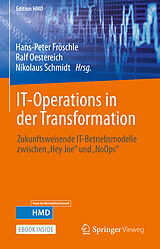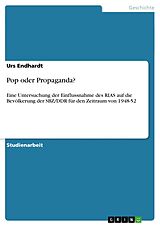How to Live Safely in a Science Fictional Universe
Tiefpreis
CHF23.90
Auslieferung erfolgt in der Regel innert 5 bis 6 Wochen.
Kein Rückgaberecht
Beschreibung
Zusatztext 41786410 Informationen zum Autor CHARLES YU is the author of four books, including Interior Chinatown (the winner of the 2020 National Book Award for fiction), and the novel How to Live Safely in a Science Fictional Universe (a New York Times Notable Book and a Time magazine best book of the year). He received the National Book Foundation's 5 Under 35 Award and was nominated for two Writers Guild of America Awards for his work on the HBO series, Westworld. He has also written for shows on FX, AMC, and HBO. His fiction and nonfiction have appeared in The New Yorker , The New York Times , The Wall Street Journal , and Wired, among other publications . Together with TaiwaneseAmerican.org, he established the Betty L. Yu and Jin C. Yu Writing Prizes, in honor of his parents. Klappentext From a 5 Under 35 winner, comes a razor-sharp, hilarious, and touching story of a son searching for his father . . . through quantum space-time. Every day in Minor Universe 31 people get into time machines and try to change the past. That's where Charles Yu, time travel technician, steps in. He helps save people from themselves. Literally. When he's not taking client calls, Yu visits his mother and searches for his father, who invented time travel and then vanished. The key to locating his father may be found in a book. It's called How to Live Safely in a Science Fictional Universe , and somewhere inside it is information that will help him. It may even save his life. 1 There is just enough space inside here for one person to live inde?nitely, or at least that's what the operation manual says. User can survive inside the TM-31 Recreational Time Travel Device, in isolation, for an inde?nite period of time . I am not totally sure what that means. Maybe it doesn't actually mean anything, which would be ?ne, which would be okay by me, because that's what I've been doing: living in here, inde?nitely. The Tense Operator has been set to Present-Inde?nite for I don't know how longsome time nowand although I still pick up the occasional job from Dispatch, they seem to come less frequently these days and so, when I'm not working, I like to wedge the gearshift in P-I and just sort of cruise. My gums hurt. It's hard to focus. There must be some kind of internal time distortion effect in here, because when I look at myself in the little mirror above my sink, what I see is my father's face, my face turning into his. I am beginning to feel how the man looked, especially how he looked on those nights he came home so tired he couldn't even make it through dinner without nodding off, sitting there with his bowl of soup cooling in front of him, a rich pork-and-winter-melon-saturated broth that, moment by moment, was losingor giving upits tiny quantum of heat into the vast average temperature of the universe. The base model TM-31 runs on state-of-the-art chronodiegetical technology: a six-cylinder grammar drive built on a quad-core physics engine, which features an applied temporalinguistics architecture allowing for free-form navigation within a rendered environment, such as, for instance, a story space and, in particular, a science ?ctional universe. Or, as Mom used to say: it's a box. You get into it. You push some buttons. It takes you to other places, different times. Hit this switch for the past, pull up that lever for the future. You get out and hope the world has changed. Or at least maybe you have. I don't get out much these days. At least I have a dog, sort of. He was retconned out of some space western. It was the usual deal: hero, on his way up, has a trusty canine sidekick, then hero gets famous and important and all of that and by the time season two rolls around, hero doesn't feel like sharing the spotlight anymore, not with a scruffy-looking m...
"Glittering layers of gorgeous and playful meta-science-fiction. . . . Like [Douglas] Adams, Yu is very funny, usually proportional to the wildness of his inventions, but Yu's sound and fury conceal (and construct) this novel's dense, tragic, all-too-human heart. . . . Yu is a superhero of rendering human consciousness and emotion in the language of engineering and science. . . . A complex, brainy, genre-hopping joyride of a story, far more than the sum of its component parts, and smart and tragic enough to engage all regions of the brain and body."
—The New York Times Book Review
"Compulsively rereadable. . . . Hilarious. . . . Yu has a crisp, intermittently lyrical prose style, one that's comfortable with both math and sadness, moving seamlessly from delirious metafiction to the straight-faced prose of instruction-manual entries. . . . [The book itself] is like Steve Jobs' ultimate hardware fetish, a dreamlike amalgam of functionality and predetermination."
—*Los Angeles Times
"Douglas Adams and Philip K. Dick are touchstones, but Yu's sense of humor and narrative splashes of color–especially when dealing with a pretty solitary life and the bittersweet search for his father, a time travel pioneer who disappeared–set him apart within the narrative spaces of his own horizontal design. . . . A clever little story that will be looped in your head for days. No doubt it will be made into a movie, but let's hope that doesn't take away the heart."
--**Austin Chronicle
"If How to Live Safely in a Science Fictional Universe contented itself with exploring that classic chestnut of speculative fiction, the time paradox, it would likely make for an enjoyable sci-fi yarn. But Yu's novel is a good deal more ambitious, and ultimately more satisfying, than that. It's about time travel and cosmology, yes, but it's also about language and narrative — the more we learn about Minor Universe 31, the more it resembles the story space of the novel we're reading, which is full of diagrams, footnotes, pages left intentionally (and meaningfully) blank and brief chapters from the owner's manual of our narrator's time machine. . . . . Yu grafts the laws of theoretical physics onto the yearnings of the human heart so thoroughly and deftly that the book's technical language and mathematical proofs take on a sense of urgency."
--NPR
"How to Live Safely is a book likely to generate a lot of discussion, within science fiction and outside, infuriating some readers while delighting many others."
--San Francisco Chronicle
*"An extraordinary work. . . . I read the entire book in one gulp."
—Chris Wallace, GQ
*
"A great Calvino-esque thrill ride of a book."
--The Stranger
"Science and metaphor get nice and cozy in Charles Yu's How to Live Safely in a Science Fictional Universe. The novel joins the likes of Gary Shteyngart's Super Sad True Love Story and Jillian Weise's The Colony, fiction that borrows the tropes of sci-fi to tell high-tech self-actualization narratives."
--Portland Mercury
"A brainy reverie of sexbots, rayguns, time travel and Buddhist zombie mothers. . . . Packed with deft emotional insight."
--The Economist
"A funny, funny book, and it’s a good thing, too; because at its heart it’s a book about loneliness, regret, and the all-too-human desire to change the past."
--Tor.com
"A keenly perceptive satire. . . . Yu’s novel is also a meditation on the essentials of human life at its innermost point.. . . Campy allusions to the original Star Wars trilogy, a cityscape worthy of the director’s cut of Blade Runner and a semi-coherent vocabulary of techno-jargon cement these disparate elements into a brilliant send-up of science fiction. . . . Perhaps it would be better to think of the instructional units of How to Live Safely in a Science Fictional Universe in terms of the chapters of social commentary which John Steinbeck placed into the plot structure of The Grapes of Wrath."
--**California Literary Review
*"*How to Live …

